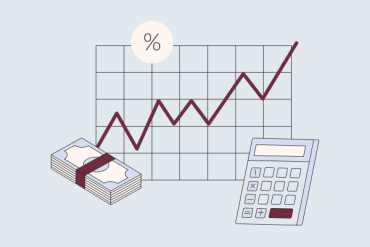Alphabet is approaching a $4 trillion market value after a recent surge that reshaped investor expectations for the future of AI as well as the entire tech sector. The rally represents one of the most dramatic turnarounds in sentiment among Big Tech giants, pushing Google’s parent company into a club that only Nvidia and Apple currently operate in.
Shares have risen nearly 70% this year, establishing Alphabet’s comeback after a period in which the company was viewed as falling behind competitors in the generative AI race. Investors see Alphabet not just catching up — but potentially setting the pace for the next wave of AI infrastructure, cloud services, and enterprise tools.
A Turnaround Rooted in AI Execution, Not Only Hype
Just two years ago, Alphabet faced plenty of skepticism after OpenAI’s ChatGPT appeared to outpace Google’s position in generative AI. Yet the company has responded with a disciplined rollout of product integrations, a revamped cloud strategy, and its high-performing Gemini models. Analysts say this shift has tightened Alphabet’s competitive moat rather than weakening it.
The expansion of Google Cloud into an enterprise AI powerhouse has been pivotal. A once-underperforming division is now attracting significant commercial demand and has even secured Berkshire Hathaway as a major investor. That endorsement served as a turning point for the market — signaling that one of the world’s most famously selective investors was backing Google’s future earnings engine.
Alphabet’s strategy pairs software models with custom silicon, creating a distinct approach compared to its rivals. Unlike Microsoft and Amazon, which lean more heavily on Nvidia, Google’s in-house chips offer a cheaper and increasingly more efficient alternative for developers and enterprises building AI workloads.
Valuations Stir New Bubble Fears
Alphabet’s rise has also spurred an uncomfortable debate: whether soaring AI valuations are beginning to look like a bubble. Some business leaders and economists have pointed to AI “mania,” echoing concerns raised during the dot-com boom, where optimism outpaced revenue reality. Circular deals between chipmakers and AI labs — especially those involving Nvidia and OpenAI — have amplified the anxiety around inflated demand projections.
Yet Alphabet stands apart crucially. The company already monetizes search, ads, cloud infrastructure, and consumer software at a global scale. It is not building new markets from scratch — it is augmenting existing ones with AI. As Bloomberg economists noted, the firm’s ability to integrate generative models into products that billions already use dramatically reduces commercialization risk.
In addition, Alphabet’s escape from regulatory rupture has boosted confidence. The company avoided a forced breakup when courts ruled that while its search operations were monopolistic, they would not be dismantled. With antitrust concerns cooling and AI revenue accelerating, the stock regained room to expand.
Why Alphabe Matters More Than Ever to AI Markets
Alphabet’s potential $4 trillion valuation is not just a milestone for one company; it’s a turning point for the tech industry. If Nvidia supplies the hardware and Microsoft pushes enterprise integration, Google is emerging as the bridge between consumer markets and industrial-scale AI adoption.
Three competitive forces help underscore Alphabet’s position:
- Mass consumer reach: Other firms must build demand; Google already owns user behavior.
- AI-native infrastructure: In-house chips create a cheaper, controllable alternative to Nvidia dependence.
- Cross-platform monetization: AI lifts not just Google Cloud, but ads, search, content tools, and devices.
This combined model could set the standard for profitability in the AI era — where value comes from integration, not just invention.
Looking Ahead
Alphabet’s journey toward $4 trillion will intensify scrutiny over whether AI’s commercial promise can meet investor expectations. If the company continues proving that generative models boost real revenue, not just hype, it could redefine what sustainable AI growth looks like. At the same time, its dominance could accelerate regulatory tension and force rivals to pursue more aggressive alliances, mergers, or infrastructure deals just to keep pace.
For now, the market is signaling a new equation: the winners of AI will not simply be the labs building the smartest models or the firms selling the fastest chips. They will be the companies capable of turning AI into the backbone of everyday technology — and Alphabet may be the best positioned to do exactly that.


